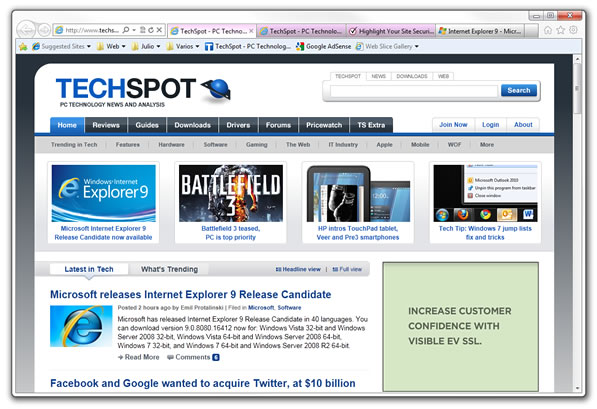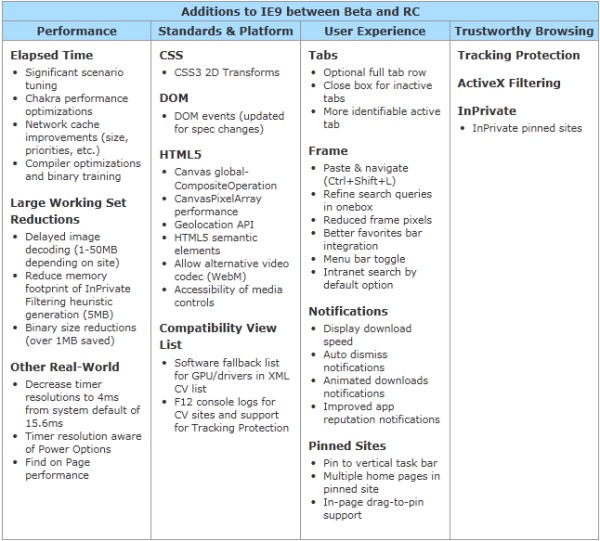Microsoft has released Internet Explorer 9 Release Candidate in 40 languages. You can download version 9.0.8080.16412 now for: Windows Vista 32-bit and Windows Server 2008 32-bit, Windows Vista 64-bit and Windows Server 2008 64-bit, Windows 7 32-bit, and Windows 7 64-bit and Windows Server 2008 R2 64-bit.
The new RC build includes a Tracking Protection feature, which gives users the option to control what third-party site content can track them when they're online, as well as a new ActiveX filtering option, which allows users to turn on/off ActiveX plug-ins. Best of all, Microsoft has addressed what was arguably the biggest complaint with the new version (the company has gone through over 17,000 pieces of feedback): if you want your tabs on a separate line from the address box, there's now an option to turn that on from the right click menu at the top of the browser.

At the same time, IE9 RC is significantly faster than the beta version. Furthermore, many site rendering issues have been fixed, although we can't say that it's working perfectly. Last but not least, the new build includes hundreds of bug fixes.
Microsoft released the IE9 beta five months ago. The software giant also took the opportunity to announce that the beta surpassed 25 million downloads, making it the most downloaded beta release of Internet Explorer ever. Redmond is likely to release the final version of IE9 at its Mix11 event (April 12 to April 14, 2011).

"IE9 RC supports additional emerging Web standards including CSS3 2D Transforms, HTML5 Geolocation and a set of HTML5 semantic elements," a Microsoft spokesperson said in a statement. "We've added support for the HTML5 canvas globalCompositeOperation property and improved the performance of canvas's CanvasPixelArray. We've updated IE9 RC to reflect changes to the DOM events and added accessibility to the HTML5 audio and video controls. These additions reflect our pattern of implementing site ready HTML5 while ensuring developers can experiment with new and emerging specifications through our HTML5 Labs. As these specifications become stable, you can expect we will implement them in IE as we have throughout the development of IE9."